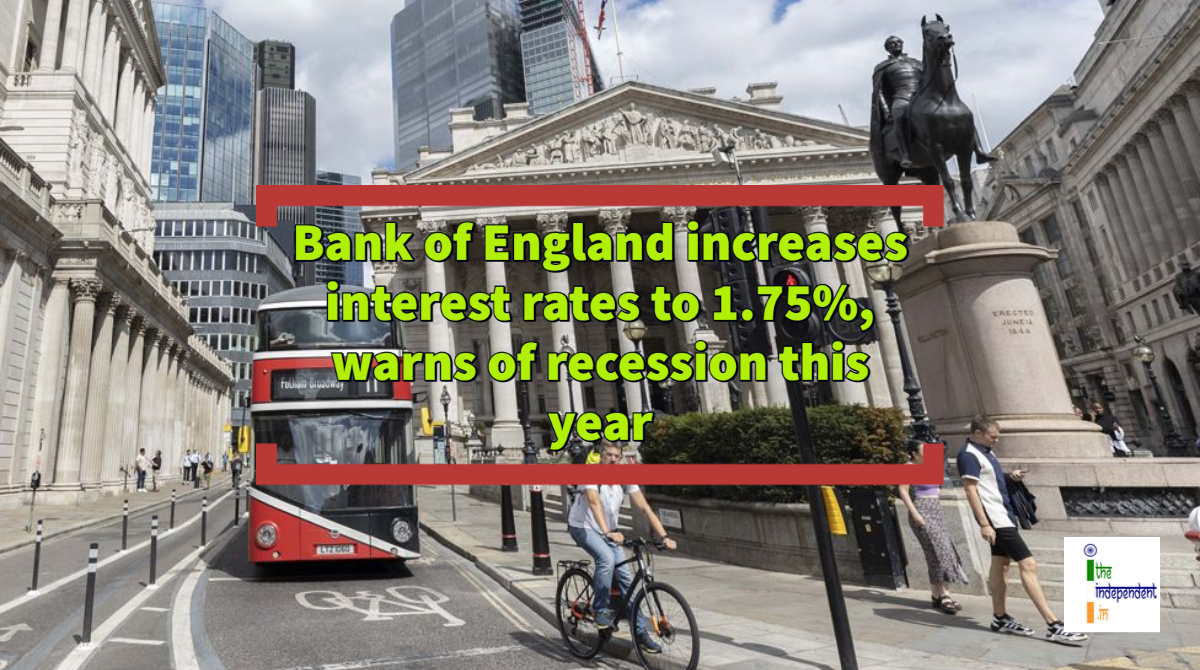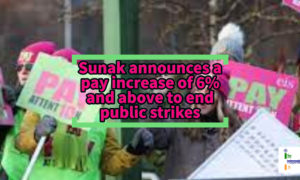
The Bank of England has warned that U.K. will fall into recession this year as it raised interest rates from 1.25% to 1.75% to curb soaring prices
The Bank of England has warned that United Kingdom (U.K.) will fall into recession this year as it raised interest rates from 1.25% to 1.75% to curb soaring prices.
The Monetary Policy Committee voted by a majority of 8-1 to increase the Bank Rate to 1.75%. The Bank of England said it expects the economy to shrink in the final 3 months of this year and keep shrinking until the end of 2023. This will be the longest inflationary period since the 2008 financial crisis. The major reason for pushing U.K. into recession is the rising gas price following Russia’s invasion of Ukraine. The Bank warned that a typical energy bill would hit £ 3,500 in October 2022.
An average household would have to pay almost £ 300 a month for energy. The rise in energy prices will drive inflation, the rate at which prices rise to 13%, its highest level for 42 years. Since May 2022, the price of gas has more than doubled.
Speaking on the occasion, the Governor of Bank of England – Andrew Bailey said, “Inflation hits the least well off hardest but if we don’t act to prevent inflation becoming persistent, the consequences later will be worse.”
Taking it to twitter, Bank of England tweeted,
We’ve put up interest rates to help return inflation to our 2% target. What happens to interest rates in the coming months will depend on what happens in the economy. https://t.co/389XbdQZWf #MonetaryPolicyReport pic.twitter.com/6enYvRHKOI
— Bank of England (@bankofengland) August 4, 2022
This is the sixth increase in a row as the Bank struggles to reduce inflation to its 2% target. The Bank said that while it understands that the increased cost of living will push many people to poverty, it needs to raise the rates as it is the only way to control inflation. Higher interest rates make it more expensive for people to borrow money and encourage them to save. That means that, overall, they will tend to spend less. If people on the whole spend less on goods and services, prices will tend to rise more slowly. That lowers the rate of inflation.
There is also pressure on prices from developments in the United Kingdom. Businesses are charging more for their products because of the higher costs they face. There are more job vacancies than there are people to fill them, as fewer people are seeking work following the pandemic. That means that employers are having to offer higher wages to attract job applicants. Prices for services have risen markedly.







